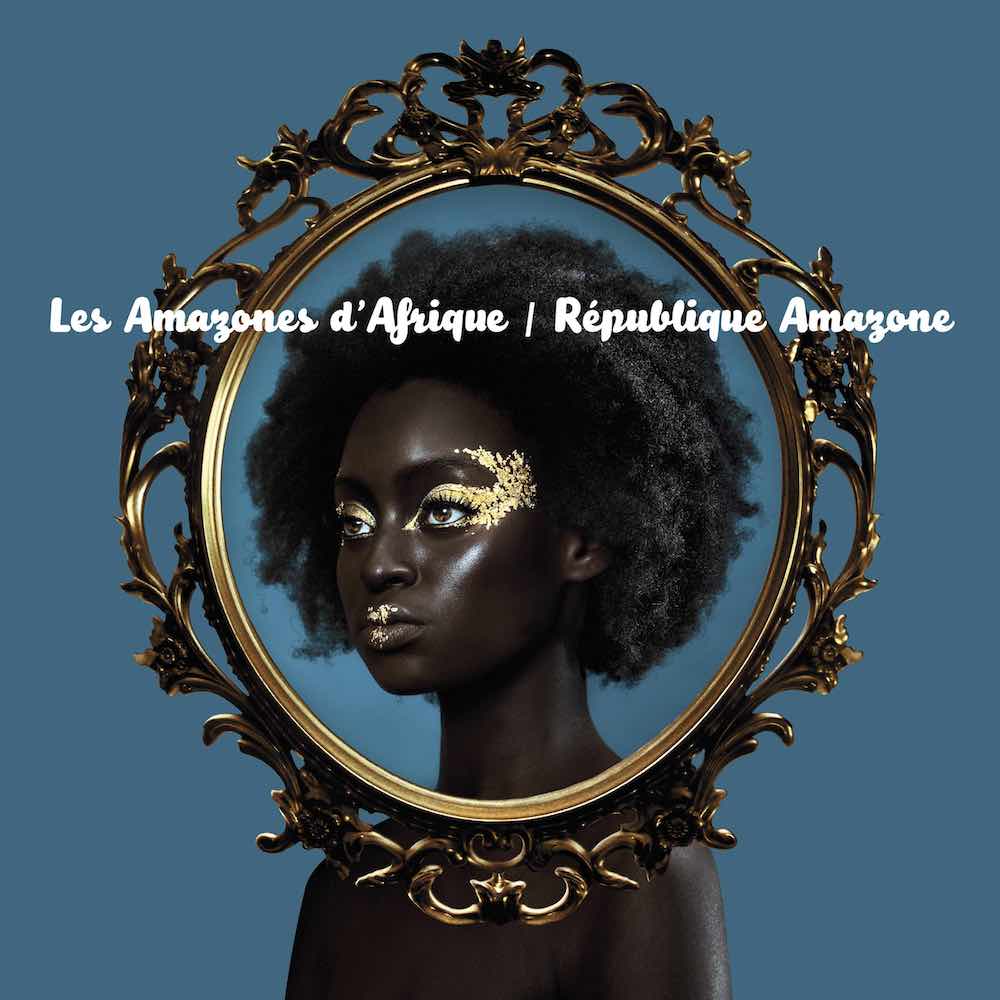Can a piece of music actually bring about social change? Can the ephemeral placement of a group musical notes with relation to a set of abstract lyrics illicit a public response to dogmatic social practises that would effect change? For a group of west African musicians the answer is emphatically, yes. “Les Amazones d’ Afrique are an all-female collective of west African musicians campaigning for gender equality, strong in the belief that music can support social progress.” Kandia Kouyaté, Angélique Kidjo, Mamani Keita, Rokia Koné, Mariam Doumbia (of Amadou & Mariam), Nneka, Mariam Koné, Massan Coulibaly, Madina N’Diaye, Madiaré Dramé, Mouneissa Tandina and Pamela Badjogo make up the group, coming together in Mali in 2015 to approach issues of gender inequality in a west African dialect that extends from Mali, to Benin, Nigeria and Gabon and eventually the rest of the world. All accomplished musicians in their own right with Grammy awards amongst the accolades between them, Les Amazones d’ Afrique take up a rousing battle cry on their debut album with vocals that haunt blues dub and funk arrangements on the record.
A distorted Mbira (thumb piano) calls in the album, counterpointing a rhythm section playing in a blues dialect, and when Angélique Kidjo’s join’s the minimalist pop arrangement, several musical histories collide as an incredible diorama of disparate musical cultures coming together as a single voice. From there to the end of the A-side, Les Amazones d’ Afrique’s 2016 hit “I Play the Kora”, the producer Liam Farrell (Doctor L) references a thick lexicon of musical traditions, straining under the effect of distortion as they eddy around his larger than life bass-patterns. Film composer and producer, Farrell takes care of most of the instrumentation on the record, calling in favours from drummer Mouneissa Tandina, ngoni player Harouna Samaké and guitarist Mamadou Diakité at times, as functional accompaniment to the vocals that take centre stage throughout. Avoiding obvious musical curios and reductive recording practises Les Amazones d’ Afrique transcend the term World Music and any of its kitsch associations, and even on a song like B-side opener”Anisokoma” with its strong traditional African provenance, nothing can undermine the prowess of these incredible singers.
Even though the literal message to their music might get lost in languages like Fon and Bambara on the record, the visceral encounter with these voices provoke as they rage and grieve against the musical backdrop anchored by Liam Farrell’s lurching bass lines. In the context of the record, which is made abundantly clear through the powerful image of the artwork; the text on the back of the record (the second thing you read); and the liner notes, it is impossible to miss the intention behind these voices on the record, and even though we might not understand some of the lyrics, an internal dialogue exists between us and the music. It’s hard not to think about issues like sexual abuse, FGM and gender inequality while listening to the record without taking anything away from the allure of the music. But it’s not just in the message that Amazones d’Afrique are able to effect social change, and apart from starting a crowd funding campaign, they’ve also donated all the profits from “I Play the Kora” to “The Panzi Foundation”, a support agency for survivors of sexual violence in DRC.
It seems indeed that music can support social progress, from planting a seed for thought to providing financial support for social causes. Les Amazones d’ Afrique are justified in their belief and have done so in the best record we’ve come across this week.

